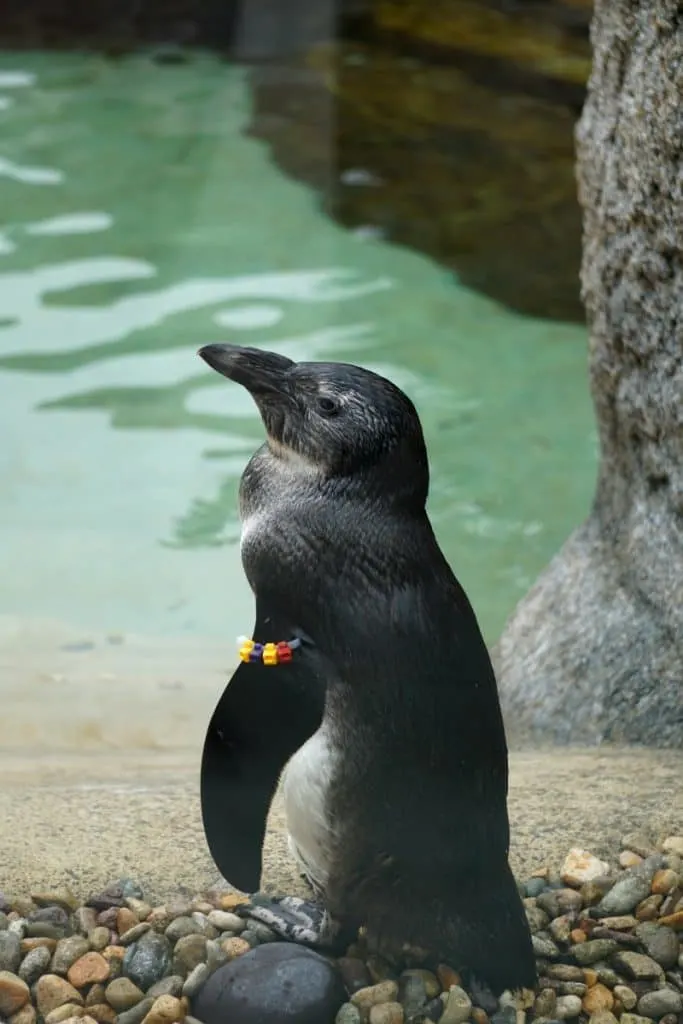Is Africa on your bucket list? You won’t have to travel that far thanks to the San Diego Zoo’s newest habitat, Conrad Prebys Africa Rocks. We got a chance to visit the San Diego Zoo and see this fantastic exhibit. Keep reading to learn more about Africa Rocks, the animals, Elvis, and the 65-foot waterfall!
Africa Rocks at the San Diego Zoo
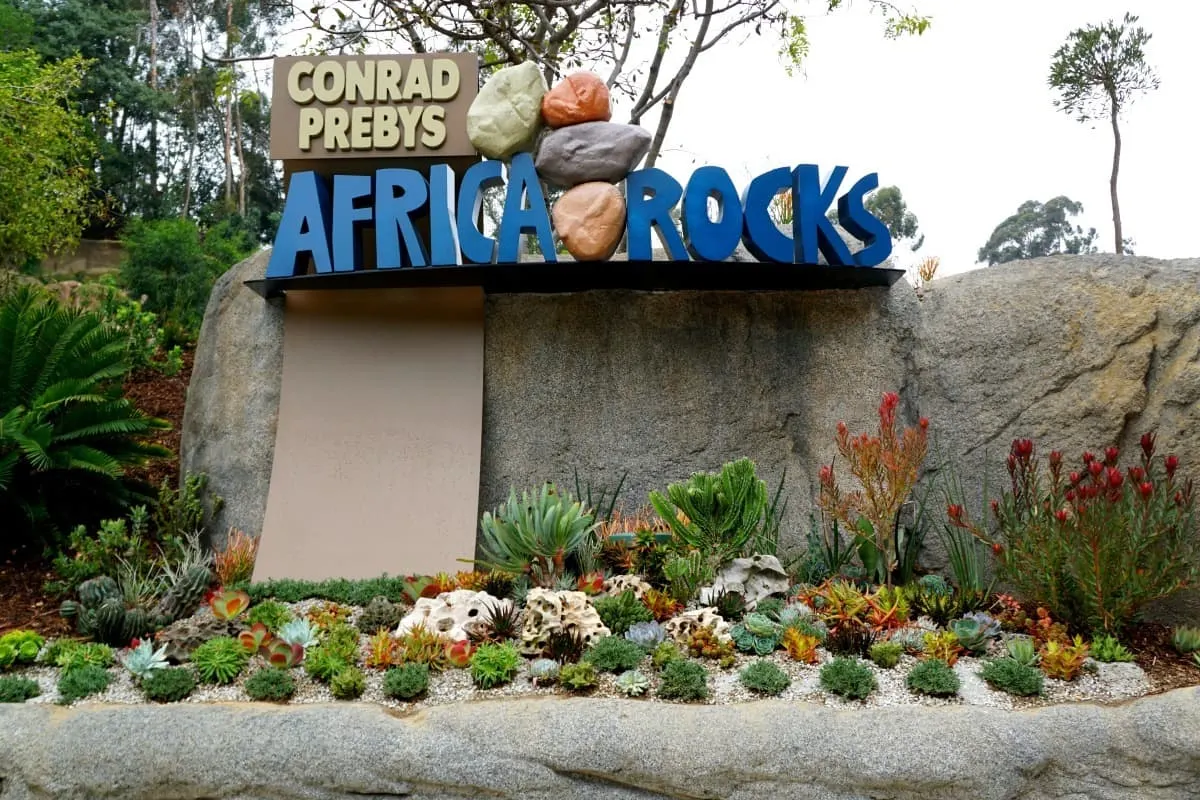
Africa Rocks at the San Diego Zoo debuted Saturday to raving fans. Visitors got the first peek of the hottest ticket in town, the African Penguins.
The African Penguins are the first animals in the star-studded line-up that includes lemurs, meerkats, and baboons. According to Shawn Dixon, Chief Operating Officer for San Diego Zoo Global, the rest of the lineup will roll out “over the course of the summer.” Habitats will open as the animals acclimate to their new environments.
The creatively named exhibit, Africa Rocks, is a play on the animals’ African habitats of rocks, boulders, and stalactites.
Fun fact: You’ll get a chance to see Elvis when the rest of the Africa Rocks habitat opens. Elvis is the leader of the Hamadryas baboon troop.
Six Habitats
By the end of summer, all six habitats will be open. Here’s a quick description of each habitat and what to expect.
Kopje
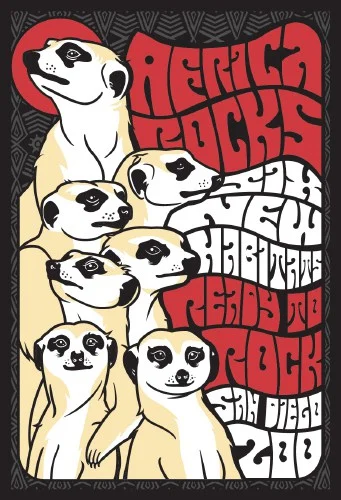
Photo courtesy: San Diego Zoo
The Kopje (African for little hills) exhibit features meerkats, hyraxes, and klipspringer antelope. The meerkats have been at the San Diego Zoo since 1983. I’ve been a huge meerkat fan since Animal Planet’s Meerkat Manor.
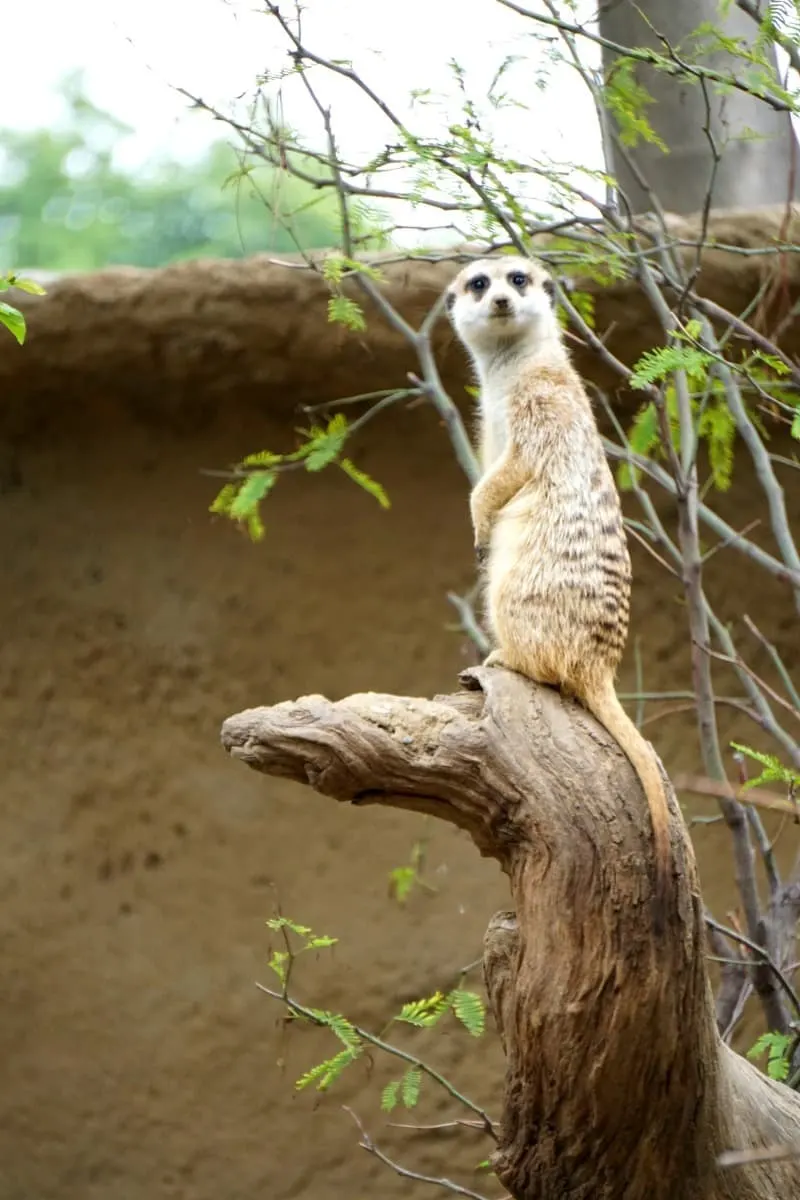
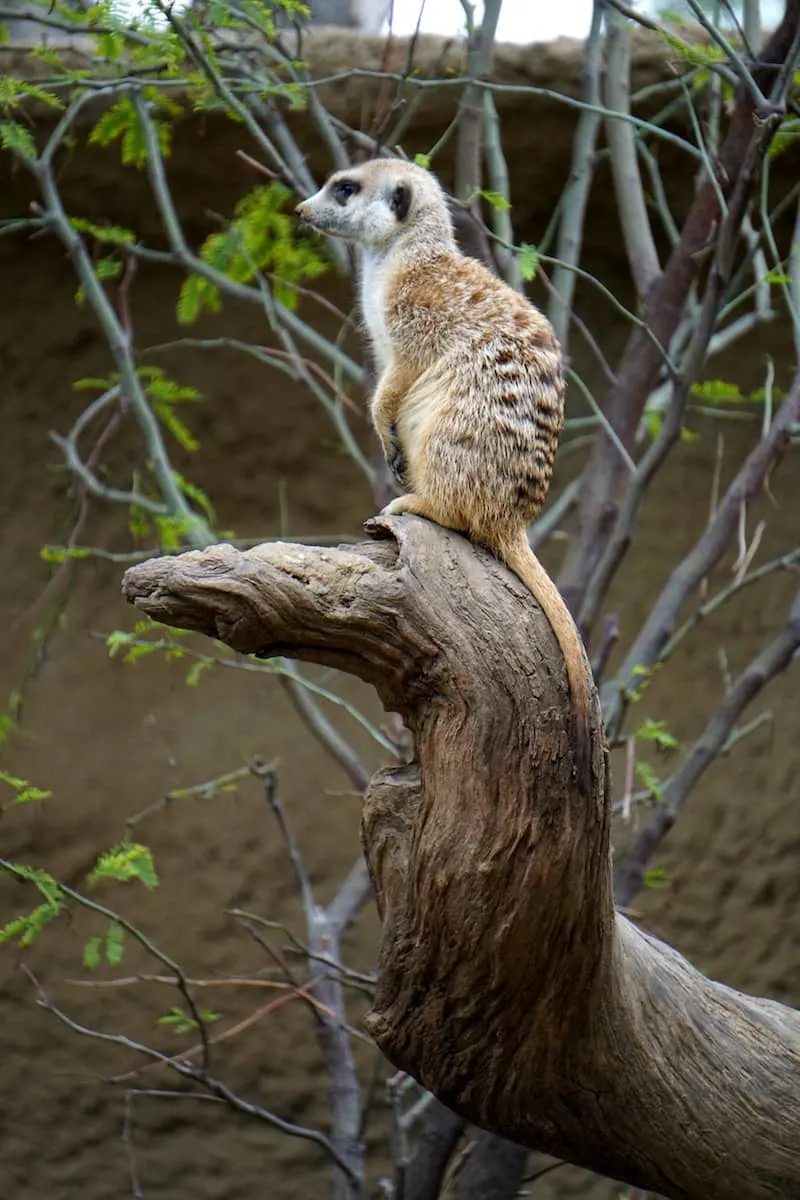
Ethiopian Highlands
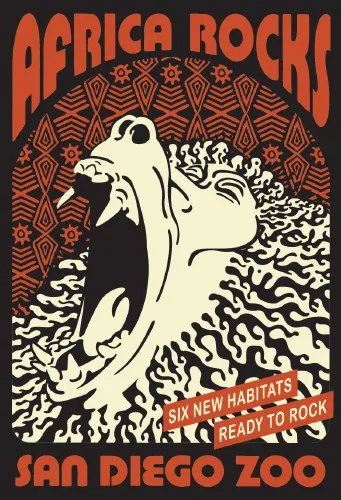
Photo courtesy: San Diego Zoo
In the mountainous Ethiopian Highlands, you’ll see Elvis and the other Hamadryas baboons. Other animals in this habit include geladas and Nubian ibex.
Acacia Woodland
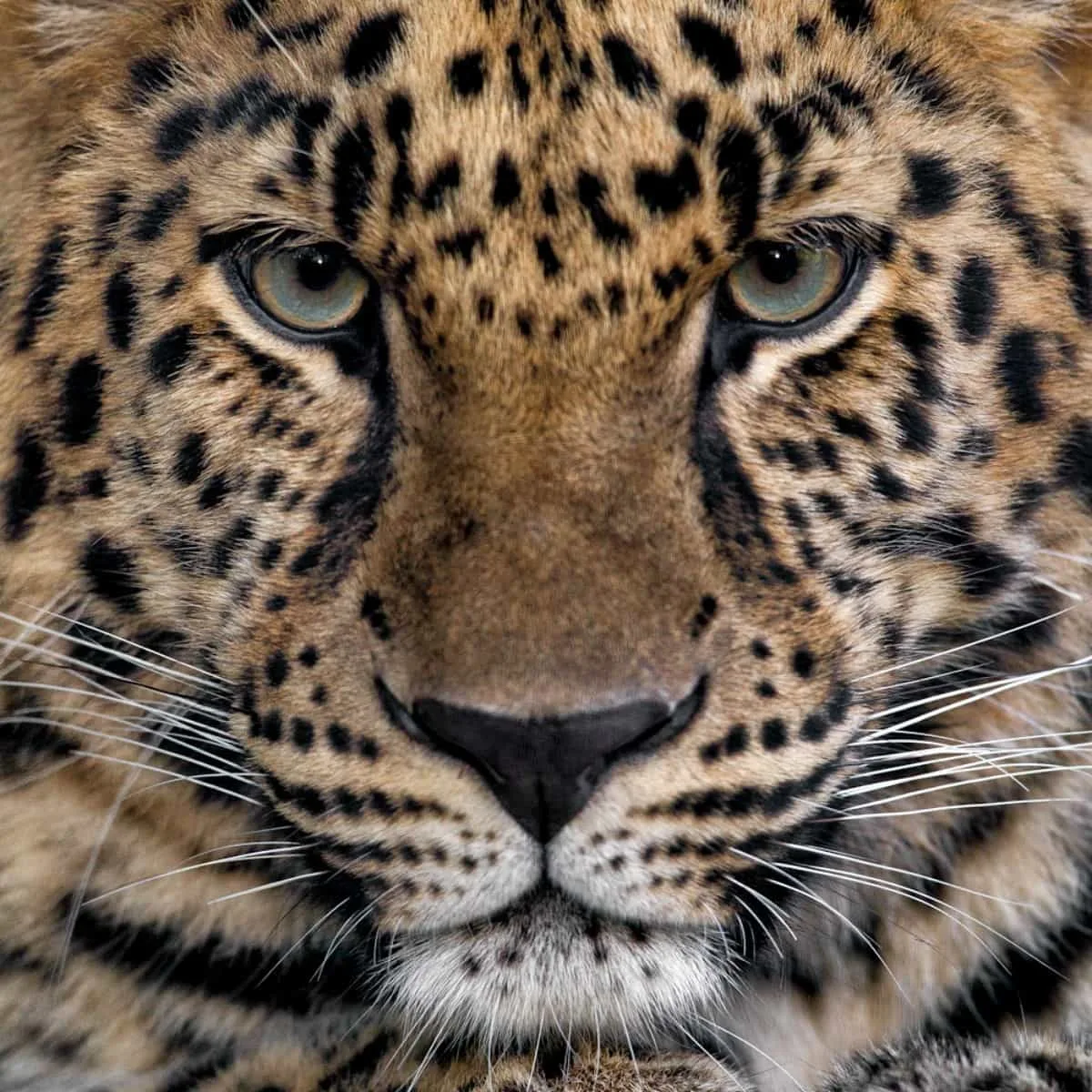
Photo courtesy: San Diego Zoo
Leopards, vervet monkeys, and rare birds will live among the acacia trees in the Acacia Woodland habitat.
Madagascar Forest
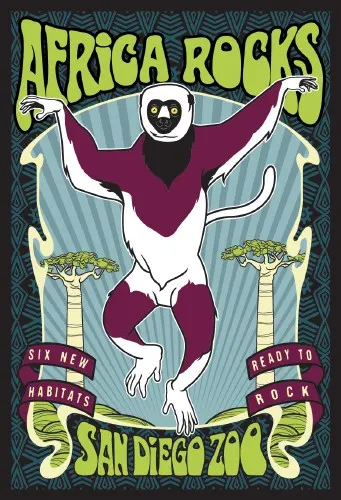
Photo courtesy: San Diego Zoo
I can’t wait for Madagascar Forest to open. Who can resist limestone formations and tree-leaping lemurs!
West African Forest
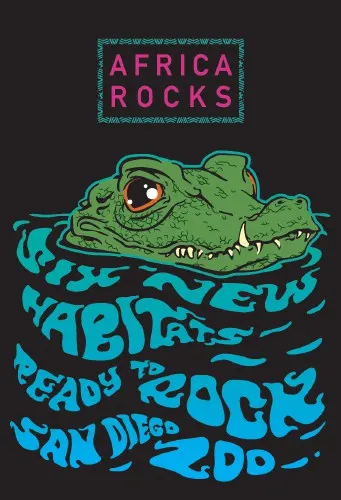
Photo courtesy: San Diego Zoo
The West African Forest will be home to dwarf crocodiles and a 65-foot waterfall.
Cape Fynbos
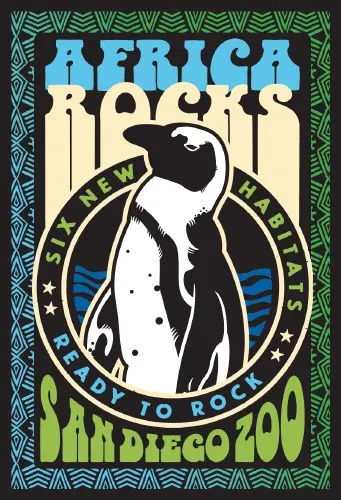
Photo courtesy: San Diego Zoo
Cape Fynbos is home to rare African plants, California leopard sharks, and African Penguins.
African Penguins
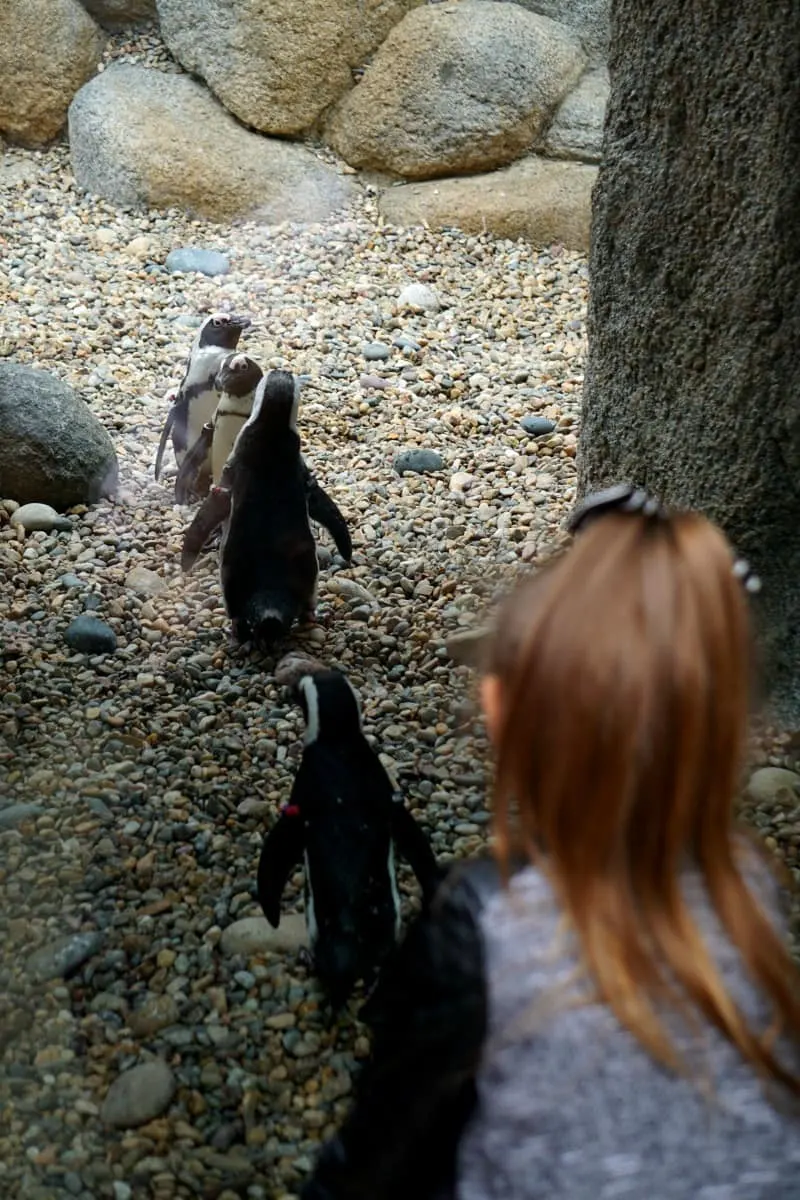
Follow the leader
The African Penguins, San Diego Zoo’s cutest rock stars put on a show at the Cape Fynbos habitat. A typical June gloom day, the warm-weather African Penguins skipped the pool and hung out on the cobblestone beach. They must have been working on their tans. 🙂
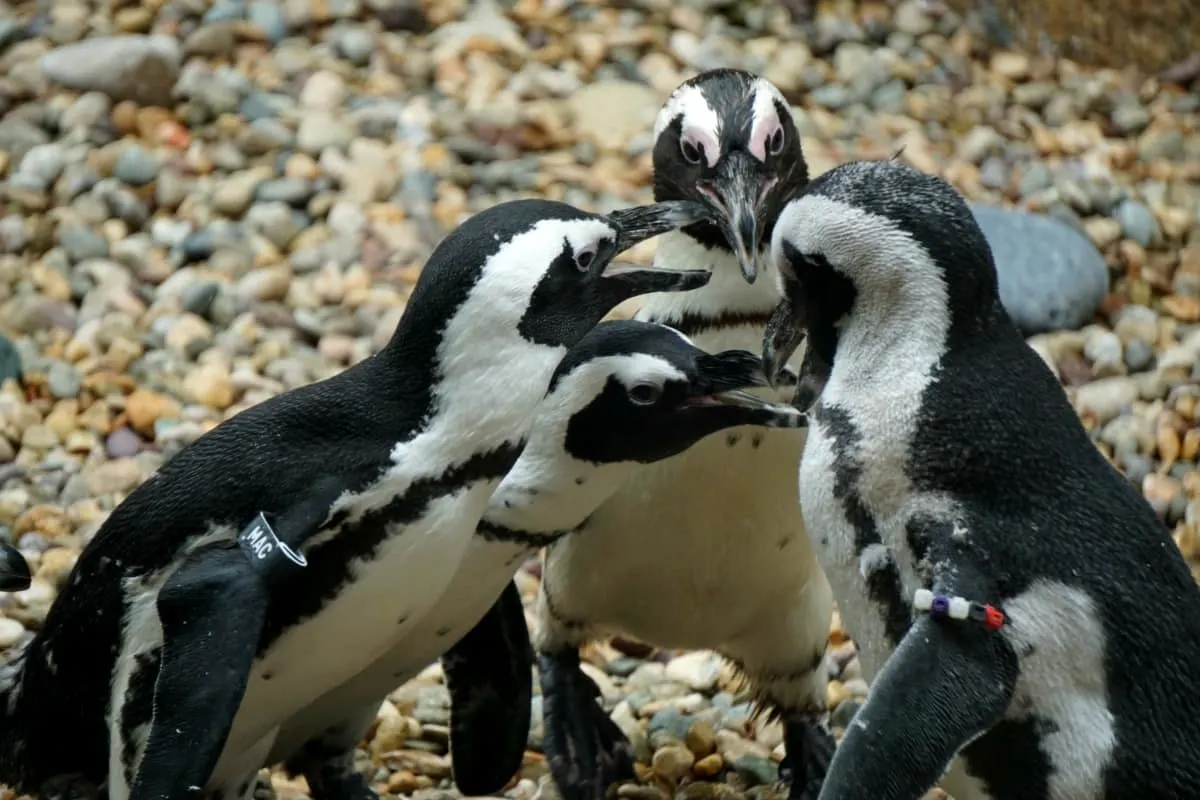
Mac and the others were picking on the penguin on the right.
As they frolicked on the beach it’s easy to see that these playful guys are embracing their new home. How could they not when the Zoo has made every effort to replicate their environment. You can get to know each penguin. Because each penguin has a name tag.
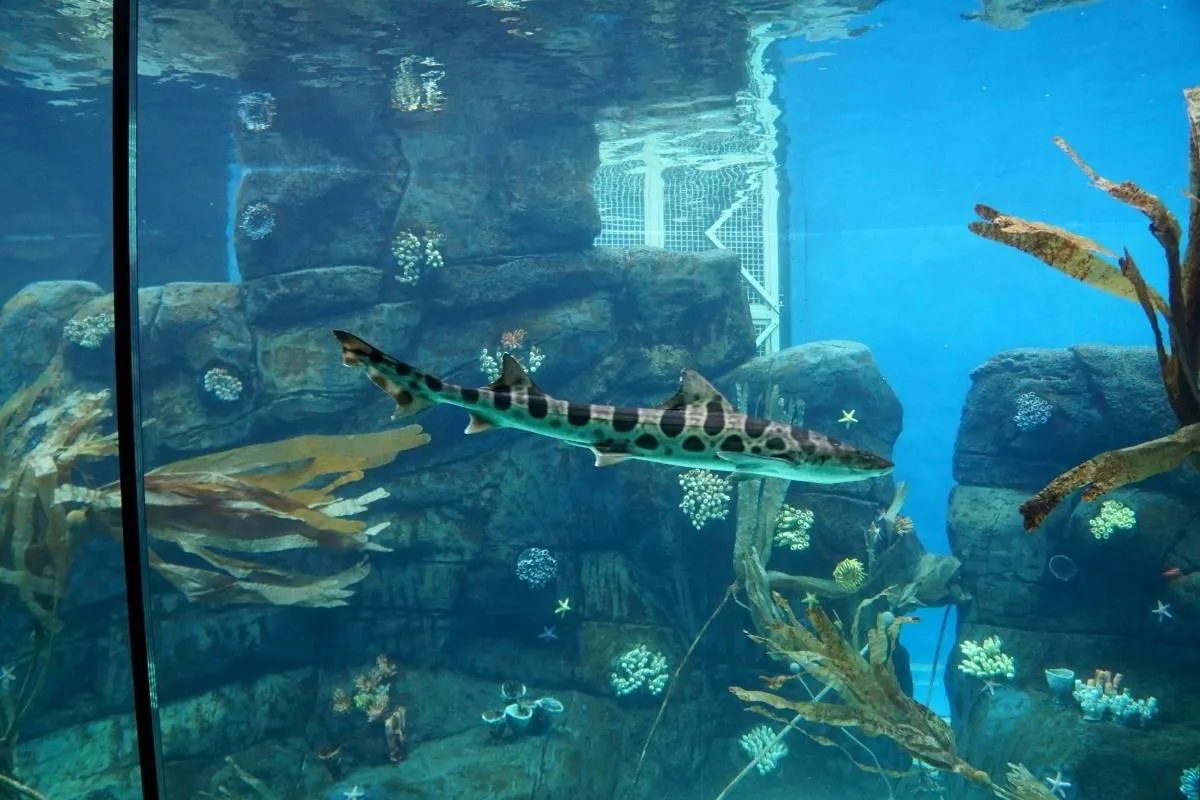
Cape Fynbos includes 540 million-year-old granite boulders and a 200,000-galloon pool that’s 170 foot long and 13 feet deep. The penguins share the pool with California Leopard Sharks.
But don’t worry, the penguins are safe! The 12 sharks won’t eat penguins. But if you’re a crab or clam watch out!
The endangered African Penguins are part of the San Diego Zoo’s breeding and sustainability program. Last November, the Zoo helped the Southern African Foundation for the Conservation of Coastal Birds (SANCCOB) rehabilitating penguins. Read how the San Diego Zoo is helping raise penguin chicks.
Fun fact: It’s been 35 years since a large colony of penguins has returned to the Zoo!
Rady Falls: 65-Foot Waterfall
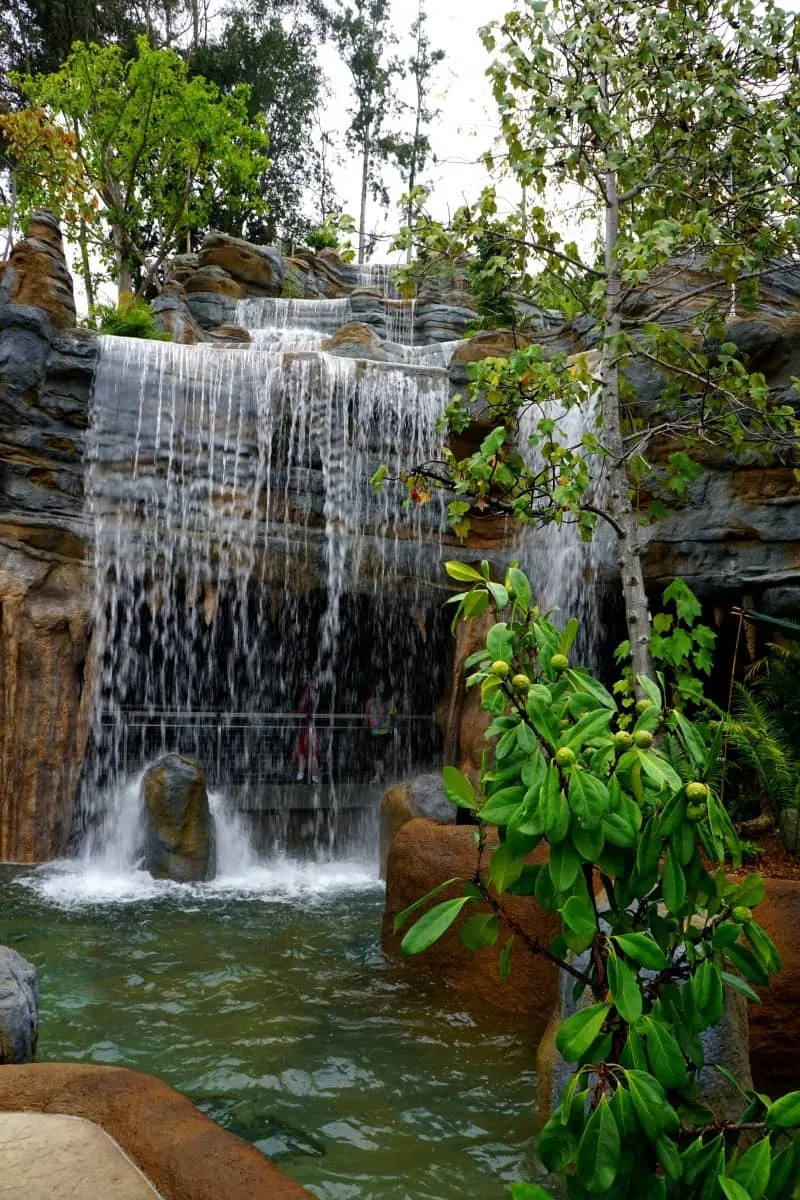
One of the coolest parts of the Africa Rocks exhibit is Rady Falls, a 65-foot waterfall in the West African Forest habitat. At almost 7 stories high, Rady Falls is San Diego’s largest man-made waterfall.
Walk behind the waterfall to check out the grotto. Keeping with the Zoo’s sustainability practices, Rady Falls uses recycled water.
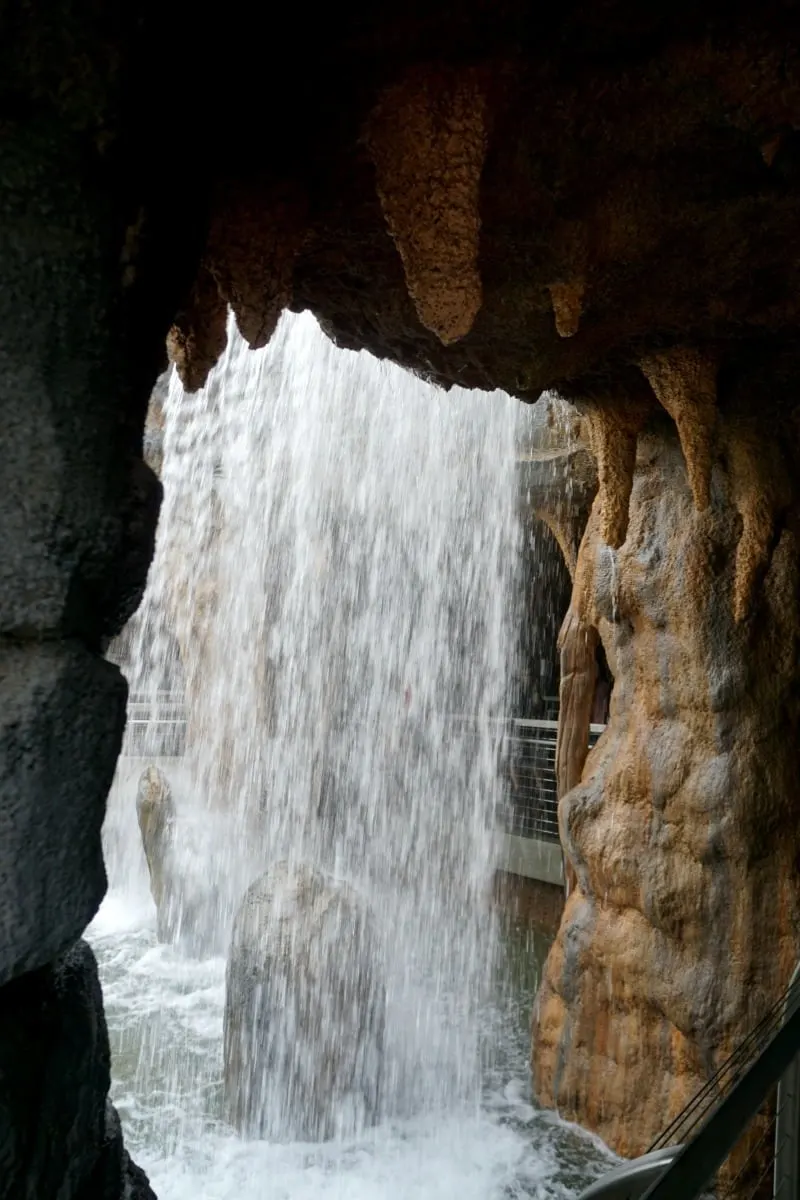
You can have your photo taken in front of Rady Falls for a fee. Or you can do like I did and grab a selfie.
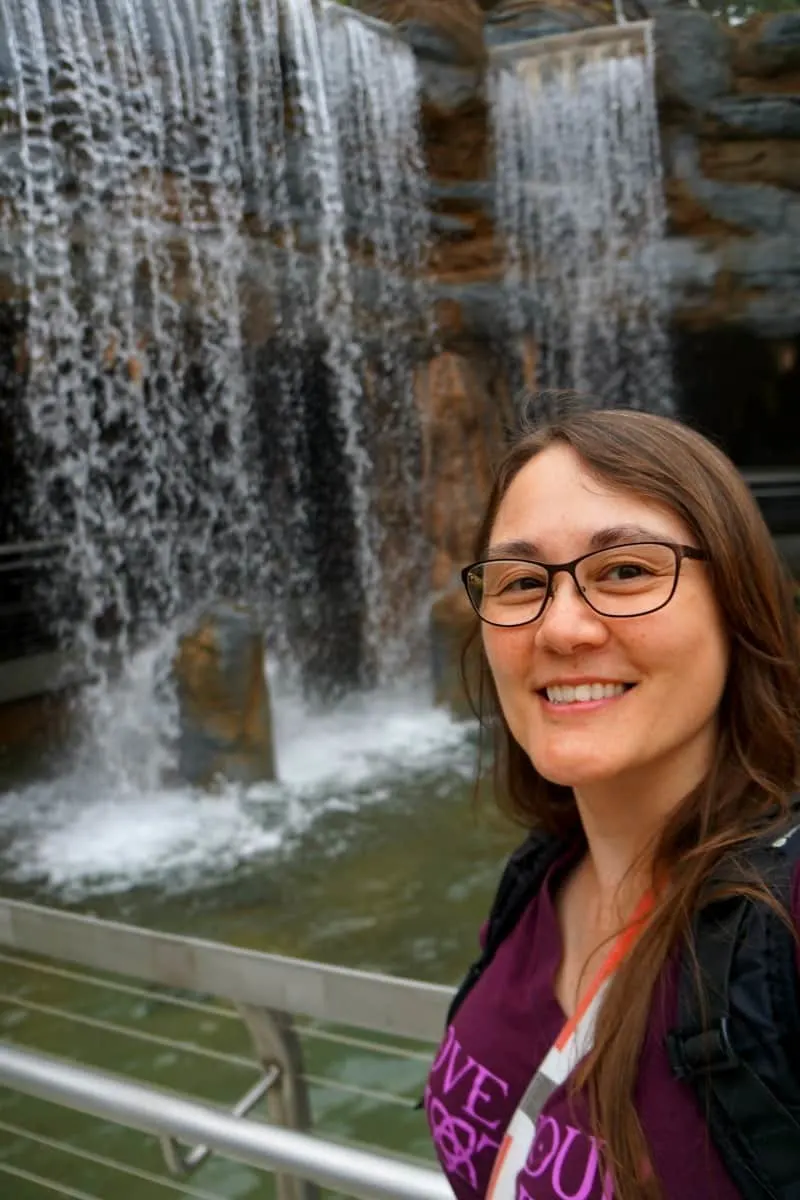
Pro-tip: Expect crowds at Rady Falls on hot days. Because the refreshing mist from the falls will be too enticing.
African Garden
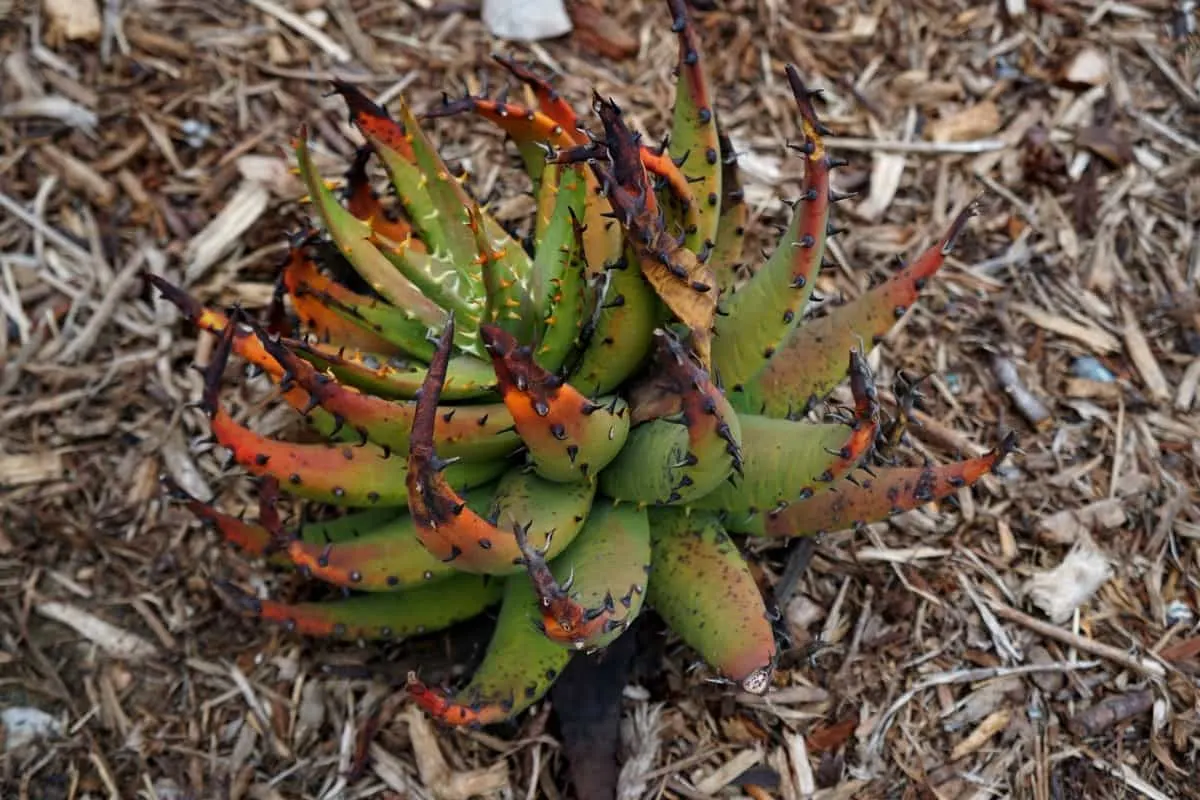
As you enter the Africa Rocks habitat, take the time to stop and admire the plants in the African Garden. You’ll discover a variety of rare African plants.
Mesa Bridge: 450-Foot Bridge
Spending a day at the Zoo will take on a new meaning once the Mesa Bridge opens. The Mesa Bridge, a 450-foot bridge, that will connect the Lost Forest to the Elephant Odyssey is set to open this summer.
You’ll be able to get from one end of the San Diego Zoo to the other in a few minutes. This will be a huge time saver for families pushing little ones in strollers. And a great benefit if you have a hard time walking or are using a wheelchair.
Because the Mesa Bridge elevators are still under construction, only the people mover (moving walkway) is open. There’s a steep incline on the people mover.
Pro-tip: Lean slightly forward when you step onto the people mover or you will fall backward.
Why the San Diego Zoo vs the Safari Park?
You might wonder why the penguins and other animals are living the San Diego Zoo instead of the Safari Park. Because “these are the smaller animals. The animals that people don’t really think about being from Africa. The Safari Park is the savannah. ” states Douglas Myers, San Diego Zoo Global President and CEO.
Conclusion
Conrad Prebys Africa Rocks is open at the San Diego Zoo. The six habitat exhibit focuses on the lesser known animals and plants of Africa.
You can see rare African plants, leopard sharks, and endangered African Penguins in the Cape Fynbos habitat. Take a break from the heat under the cool mists of Rady Falls, a 65-foot waterfall.
The remaining habitats to include rare tree-leaping lemurs and a baboon named Elvis will open throughout the summer as the animals acclimate to their new environment.
Be sure to visit the star-studded lineup at the Conrad Prebys Africa Rocks habitat at the San Diego Zoo. Can’t make it to the Zoo? Check out the live webcam.
We really enjoyed seeing the African Penguins in the new habitat and can’t wait for the rest of the exhibit to open. What’s your favorite habitat at the San Diego Zoo?
Pin this to your travel, vacation, family travel, or San Diego boards:
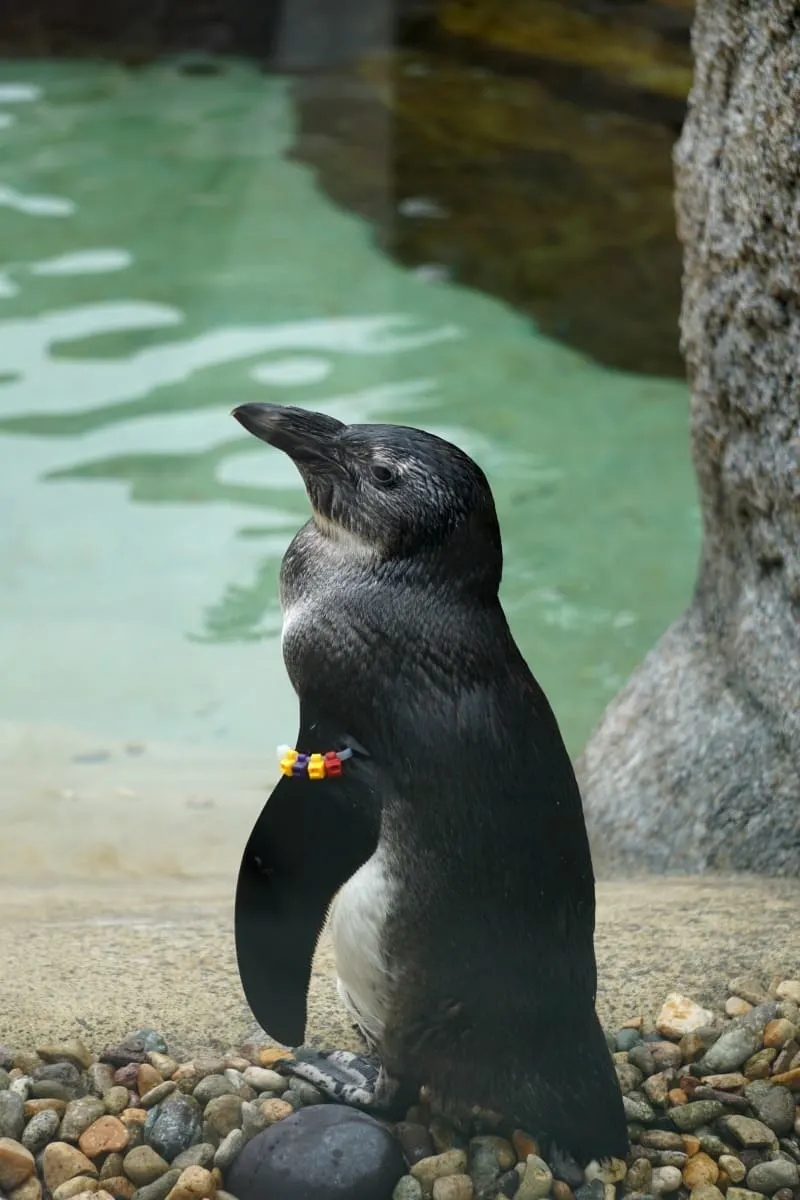
Comment, tweet, or share this post.
Get the best credit card bonuses.
Follow us on Twitter | Facebook | Pinterest | Instagram | YouTube
Got a question? Or want help, suggestions, travel tips, learn how to travel for free, find out about travel deals, and maximize your miles and points? Use the subscription box below to sign-up and get post updates by email.
Traveling Well For Less has partnered with Your Best Credit Cards for our coverage of credit card products. Traveling Well For Less and YBCC may receive a commission from card issuers.

